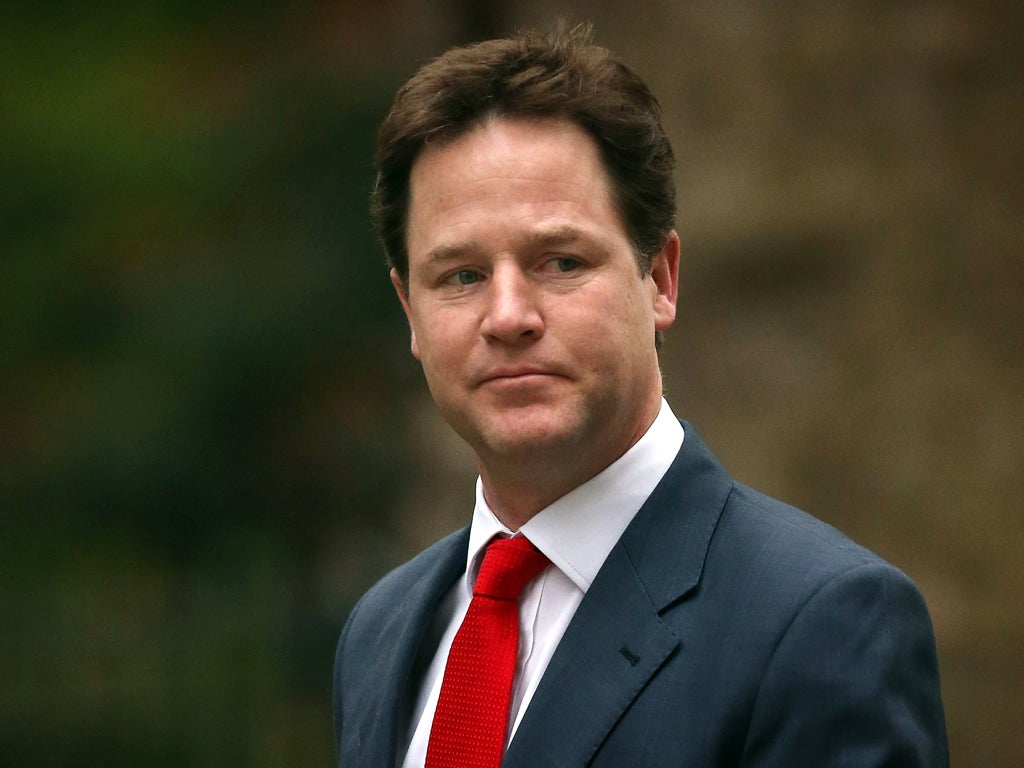Long before their drubbing in Rotherham, it was the Iraq War that destroyed the Liberal Democrats
The precipitous decline of the party is no mystery at all, merely a regression to the mean. The wonder is they have survived so long, not whether they can grow again

With all eyes on Labour and UKIP, the Liberal Democrats might have hoped to slink away from yesterday's by-elections with minimal humiliation. These days, that counts as a victory.
Instead, like Sideshow Bob stepping on rakes, Nick Clegg's sorry crew get a new smack in the face wherever they turn. CRASH! Beaten into third place by UKIP in Middlesbrough! BANG! Fourth place in Croydon North! But these turned out to be mere footnotes to the main evening's WALLOP!: eighth place in Rotherham. Eighth. Behind the BNP. Behind Respect. Behind the English Democrats. Eighth place, out in the long grass that is the traditional preserve of diehard Trotskyists, fringe Christian activists and tragic idiots in costumes with too much time on their hands. Eighth.
These are grim times indeed for Britain's (for now) third party. With polls indicating that their presence in parliament could be reduced to as few as 10 seats at the next election, the pundit class is already crowding to the funeral buffet.
The Independent's own Steve Richards sets out some “fundamental” problems the party must address “if the Liberal Democrats are to survive as a national force”. “The scale of its collapse seems vast”, says Nick Cohen. Nick Clegg's former director of strategy, Richard Reeves, makes the case for a drastic ideological makeover as a “truly liberal” party. The one thing everyone seems to agree on is that the party can't continue as it is.
Muddling along
I find these analyses persuasive but oddly lacking in context. For, in truth, the ongoing collapse of the Liberal Democrats has been preordained for nearly a decade.
Following its collapse as a party of government, the Liberal party muddled along in its centrist niche for much of the twentieth century. Though deteriorating, at its nadir, to half a dozen sats, it kept a foot in the door of the Commons mostly by relying on the residual loyalty of a handful of Welsh and Scottish constituencies – the so-called “Celtic fringe”.
The emergence of the SDP seemed to herald a Liberal revival, but it was not to be. While the Alliance secured a larger share of the vote than Liberals alone had in generations, the elections of '83 and '87 only yielded a modest dividend in terms of seats. The formal merger at the end of the decade did nothing to alter this state of affairs; the new Liberal Democrats actually lost seats in 1992.
Under Paddy Ashdown, the party maintained its genial irrelevance. It benefited from the Tory collapse of 1997, more than doubling its representation, but remained thoroughly under the radar of national politics, Tony Blair having claimed the centre ground as his own. The arrival of Charles Kennedy, an avowed social democrat, as leader raised yet another spectre of renewed strength which was yet again dispelled. The 2001 election brought further minor gains, but once more as a footnote to the ascendancy of New Labour. Then, in the parliament that followed, came the event that was to shape our politics for many years to come: the Iraq War.
When Blair's Labour party backed the war and the Conservatives joined them, an opening was suddenly created. From having little of interest to say to any section of the British public, the Liberal Democrats suddenly found themselves as the largest party of opposition on the most controversial issue of the day. Left-wing Labour voters, already uneasy with Blair's compromises with the right, took this as the opportunity to jump ship.
Under Kennedy's haphazard leadership, the party only partly capitalised on this phenomenon, gaining just 3.7% of the vote and 11 seats in 2005. Nevertheless, the die was cast. From being a party of the liberal centre, the Liberal Democrats had instead become a coalition of the centre and the hard left.
It should have been clear that this strategy was unsustainable, but the comforting obscurity of opposition occluded this reality. For as long as they remained a minor party, they could continue to promise different things in different constituencies without fear of facing the consequences. After all, it's not as though they expected to end up in government in the near future.
Regression
You know the rest. After David Cameron spectacularly failed to win a majority against Labour at its weakest, he made his “big, open and comprehensive offer”. Suddenly, the Lib Dems were confronted with something they'd managed to avoid for a very long time, something terrifying: a decision. Nick Clegg, true to his Orange-booker instincts, signed his party on to a decidedly centre-right programme of austerity and market-oriented reform.
This decision was, in many ways, brave (not just in the Sir Humphrey sense) and defensible, but it came at a price. The left-wing end of the pantomime horse, particularly the leg composed of students, felt their votes had been betrayed – which, in fairness, they were. Labour immediately benefited to the tune of several million votes, leaving the Liberal Democrats battling with UKIP for third-party status.
So, their precipitous decline is no mystery at all, merely a regression to the mean. Those millions of votes never truly belonged to the party at all. They were merely borrowed and have now been returned with interest. There may well be a future for the Liberal Democrats as a party of the radical centre, but the days of 20% or more of the vote are gone, probably for good. Frankly, to see their evident discomfort in power, a return to worthy obscurity might be the best thing for all concerned.
Join our commenting forum
Join thought-provoking conversations, follow other Independent readers and see their replies
Comments
Bookmark popover
Removed from bookmarks